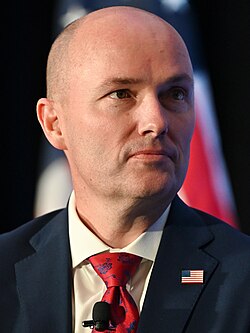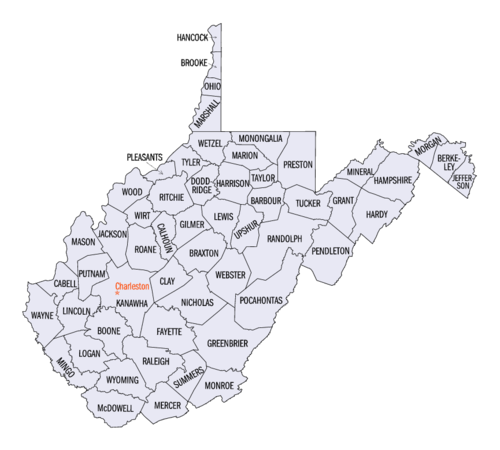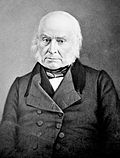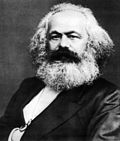Portal:Politics
| Main | Topics and categories | Tasks and projects |
The Politics portal
Politics (from Ancient Greek πολιτικά (politiká) 'affairs of the cities') is the set of activities that are associated with making decisions in groups, or other forms of power relations among individuals, such as the distribution of status or resources. The branch of social science that studies politics and government is referred to as political science.
Politics may be used positively in the context of a "political solution" which is compromising and non-violent, or descriptively as "the art or science of government", but the word often also carries a negative connotation. The concept has been defined in various ways, and different approaches have fundamentally differing views on whether it should be used extensively or in a limited way, empirically or normatively, and on whether conflict or co-operation is more essential to it.
A variety of methods are deployed in politics, which include promoting one's own political views among people, negotiation with other political subjects, making laws, and exercising internal and external force, including warfare against adversaries. Politics is exercised on a wide range of social levels, from clans and tribes of traditional societies, through modern local governments, companies and institutions up to sovereign states, to the international level.
In modern states, people often form political parties to represent their ideas. Members of a party often agree to take the same position on many issues and agree to support the same changes to law and the same leaders. An election is usually a competition between different parties.
A political system is a framework which defines acceptable political methods within a society. The history of political thought can be traced back to early antiquity, with seminal works such as Plato's Republic, Aristotle's Politics, Confucius's political manuscripts and Chanakya's Arthashastra. (Full article...)
Selected article
The Act of Independence of Lithuania was signed by the Council of Lithuania on 16 February 1918, proclaiming the restoration of an independent State of Lithuania, governed by democratic principles, with Vilnius as its capital. The act was signed by all twenty members of the council, chaired by Jonas Basanavičius. The act of 16 February was the end result of a series of resolutions on the issue, including one issued by the Vilnius Conference and the act of 8 January. The path to the act was long and complex because the German Empire exerted pressure on the council to form an alliance. The Council had to carefully manoeuvre between the Germans, whose troops were present in Lithuania, and the demands of the Lithuanian people. While the act's original document has been lost, its legacy continues. The laconic act is the legal basis for the existence of modern Lithuania, both during the interwar period and since 1990. The act formulated the basic constitutional principles that were and still are followed by all Constitutions of Lithuania. The act itself was a key element in the foundation of Lithuania's Act of the Re-Establishment of the State of Lithuania, adopted on 11 March 1990. Lithuania, breaking away from the Soviet Union, stressed that it was simply re-establishing the independent state that existed between the world wars and that the act never lost its legal power.
Featured picture

An 1880 political cartoon depicts Senator Roscoe Conkling over a "presidential puzzle" consisting of some of the potential Republican nominees as pieces of a newly invented sliding puzzle. Conkling held significant influence over the party during the 1880 Republican National Convention and attempted to use that to nominate Ulysses S. Grant, only to lose out to "dark horse" candidate James A. Garfield.
Selected quote
Selected biography
Nguyen Ngoc Tho was the first Prime Minister of South Vietnam, serving from November 1963 to late January 1964. Tho was appointed to head a civilian cabinet by General Duong Van Minh's military junta, which came to power after overthrowing and assassinating Ngo Dinh Diem, the nation's first president. Tho's rule was marked by a period of confusion and weak government, as the Military Revolutionary Council and the civilian cabinet vied for power. Tho oversaw South Vietnam's failed land reform policy, and was accused of lacking vigour in implementing the program because he was a large landowner. He was noted for his faithful support of Diem during the Buddhist crisis that ended the rule of the Ngo family. Despite being a Buddhist, Tho staunchly defended the regime's pro-Catholic policies and its violent actions against the Buddhist majority. Tho lost his job and retired from politics when Minh's junta was deposed in a January 1964 coup by General Nguyen Khanh.
Did you know (auto-generated) -

- ... that the photograph Kandake of the Sudanese Revolution symbolised the determination of the Sudanese people as they called for political change?
- ... that the 2009 book Where Heaven and Earth Meet introduced the term "Sacred Esplanade" as a politically neutral term for the religious site in Jerusalem known as al-Haram al-Sharif or the Temple Mount?
- ... that although Uzun-Hajji and Najmuddin of Gotzo were originally political allies, they later fought on opposing sides of the Russian Civil War?
- ... that United States president Joe Biden began his political career by unseating an incumbent county councilman?
- ... that Romanian adventure novelist N. D. Popescu-Popnedea "generate[d] laughter" with his deposition at a political assassin's trial?
- ... that Ye Gongchuo worked for emperors, warlords and republicans before leaving politics to focus on art?
More did you know...
- ...that the Almanach de Gotha is a directory of European nobility first published in 1763?
- ...that the 1968 pamphlet Is the School House the Proper Place to Teach Raw Sex? claimed that sex education was a Communist conspiracy?
- ...that the American Society of Magazine Editors book The Best American Magazine Writing 2007 features investigative journalism about the Beslan school hostage crisis and survivors of Agent Orange?
- ...that the Libyan opposition has embraced "Zenga Zenga", an Israeli-created auto-tuned song and viral YouTube video that parodies Libyan ruler Muammar Gaddafi (pictured)?
- ...that Chinese Taipei is the designated name the Republic of China (Taiwan) uses in most international organizations?
- ...that when the Tennessee Center for Policy Research, a "free-market think tank," criticized Al Gore's energy use, CNN mistakenly called the organization an environmental group?
In this month
- May 5, 2005 – A General Election in the United Kingdom sees Tony Blair's Labour government returned to office with a reduced majority of 66.
- May 14, 1948 – The Declaration of Independence of Israel is made.
- May 18, 1948 – The first Legislative Yuan of the Republic of China officially convenes in Nanking.
News and Current events
- August 11: 4 local government areas in New South Wales, Australia locked down after COVID-19 case
- August 11: Australia: AstraZeneca vaccine access expanded by Victorian government
- August 1: Australia: Victorian lockdown lifted
- July 29: Tunisia's president dismisses prime minister, suspends parliament
- July 25: Australia: Wikinews interviews Reg Kidd, mayor of the City of Orange, about COVID-19 lockdown and local government
- July 23: South Australia enters week-long lockdown to contain COVID-19 Delta variant spread
- July 21: Technological University Dublin senior lecturer Dr Lorcan Sirr speaks to Wikinews on housing market in Ireland
- July 21: Three rural councils in New South Wales, Australia enter 7-day lockdown
- July 21: Australia: Victoria lockdown extended by a week with 85 active cases recorded
- July 15: California governor signs new state budget, eligible Californians to get stimulus payments
Topics and categories
General images
Related portals
Associated Wikimedia
The following Wikimedia Foundation sister projects provide more on this subject:
-
 Commons
Commons
Free media repository -
 Wikibooks
Wikibooks
Free textbooks and manuals -
 Wikidata
Wikidata
Free knowledge base -
 Wikinews
Wikinews
Free-content news -
 Wikiquote
Wikiquote
Collection of quotations -
 Wikisource
Wikisource
Free-content library -
 Wikiversity
Wikiversity
Free learning tools -
 Wiktionary
Wiktionary
Dictionary and thesaurus

















































